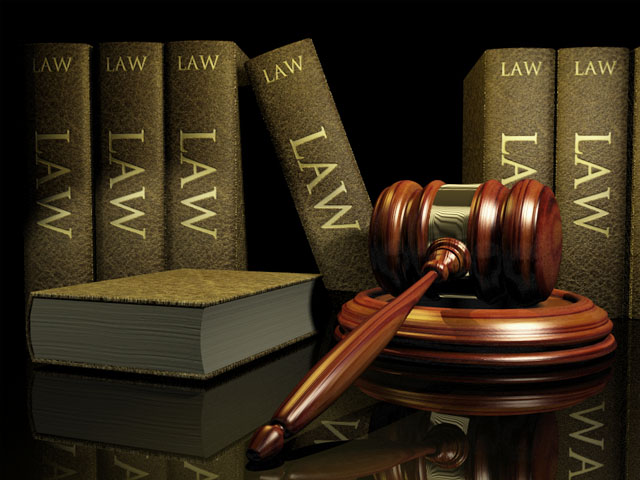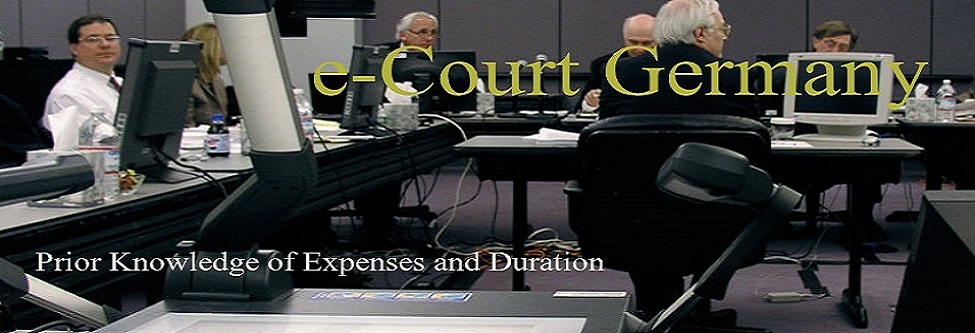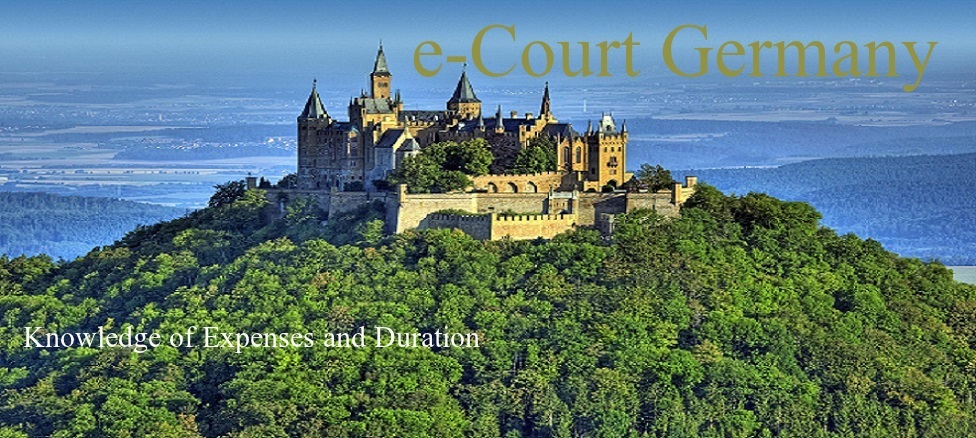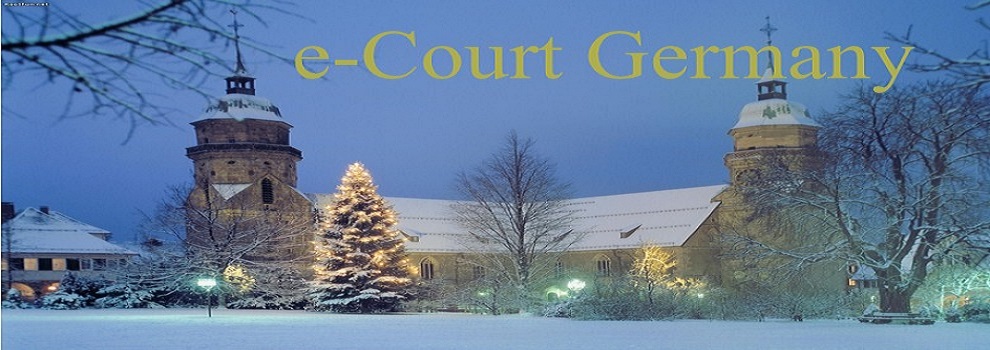Civil Law is the section of the law that deals with disputes between individuals or organisations. For example, when in a car crash a victim claims damages against the driver for loss or injury sustained in the accident, or one company sues another over a trade dispute.
Unlike criminal offences, any sentence, custodial or otherwise result usually in financial compensation. Civil law has developed in a similar way to the way criminal law has, through a mixture of statutory law made by governments, and 'precedent' which is created by earlier cases.
An example of how precedent creates law is the law of 'negligence.' In the first 'negligence' case a woman developed gastro-enteritis after swallowing a snail contained in a bottle of ginger beer. Lord Atkin, the judge who heard the case, decided that she was entitled to some form of compensation. He ruled that the manufacturer had a 'duty of care' towards its customers and in this instance had been negligent - and the law of 'negligence' was created.
Burden of proof: one crucial difference between civil and criminal law is that the 'burden of proof' is lower in a civil case. A criminal case must be proved 'beyond reasonable doubt.' A civil case only has to be proved on the 'balance of probabilities,' i.e. it is 'likely' that the defendant is guilty.
Where German's Legal System Comes From : The modern German legal system is a system of law which is founded on the principles laid out by the Basic Law for the Federal Republic of Germany, though many of the most important laws as for example most regulations of the civil code (Bürgerliches Gesetzbuch, or BGB) were developed prior to the 1949 constitution. It is composed of public law (öffentliches Recht), which regulates the relations between a citizen/person and the state or two bodies of the state (including criminal law) and the private law (Privatrecht) which regulates the relations between two people or companies and the criminal law. It has been subject to a wide array of influences from Roman law, such as the Corpus Juris Civilis, to Napoleonic law, such as the Napoleonic Code.
History
German law has been subject to many influences over the centuries. Until Medieval times the Early Germanic Law, derived from the Salic Law of the Salian Franks and other tribes, was common. With the arrival of the Renaissance, Roman law again began to play a strong role, and later on legal scholars known as the Pandectists revived the formalities of Roman law as set by Justinian in the Corpus iuris civilis. It became common law (Gemeines Recht) in large parts of the German-speaking world and prevailed far into the 19th century. As the Holy Roman Empire was composed of countless little territorial entities, the laws varied very much, according to local traditions and religions. These laws were codified in about local 3000 Weistümer (also called Holtinge or Dingrodel), collections of rural laws. Only in relation to the Imperial superior Court of Justice, the Reichskammergericht, there existed codes of procedure. In addition to these the Corpus Iuris Canonici, the source of the better organized ecclesiastical judicature and the old Corpus Iuris Civilis. Both bodies of law were central part of the education of jurists and therefore generally known among them. So these regulations were used in local procedures as well.
Prussia made an effort to bring in an all-new set of laws with the Allgemeines Landrecht für die preußischen Staaten (General National Law for the Prussian States) a system of codification, containing laws in relation to the whole spectrum of legal divisions, in the 18th century which, had a great influence on later works.
After the French July Revolution of 1830, revolutionary ideas of the French Revolution and Napoleon's laws as the Code civil the Code pénal and the Code d'instruction criminelle strongly influenced the German legal tradition, especially in the Grand Duchy of Baden, which sometimes only translated codifications of France for its own use.
With the forming of the Deutsches Reich in 1871, a major process of legal standardization ensued, beginning with criminal law and procedural law and culminating in the Bürgerliches Gesetzbuch (Book of Civil Law) after over twenty years of creative process. Important parts of German legislation still contain regulations of these laws. However, the various states always maintained their own laws to an extent, and still do so in modern federal Germany.
In 1919 in Weimar the Weimarer Verfassung (Weimar Constitution) was created: the first democratic constitution of Germany. This was a very liberal and democratic constitution, but it did not include any basic ethical or political principles. It allowed unlimited changes, the only requirement of any legal decision was a formally correct decision of the appropriate legal institution.
This ultimate democratic legal constitution allowed Hitler to change the whole form of government according to his wishes. The main crimes of National Socialism were in form absolutely legal, because the Nazi-dominated Reichstag made the necessary decisions.
After the war, the two newly emerged German states adopted two different legal systems. The socialist–communist East Germany tried to install new laws strongly influenced by communist and socialist ideology.
The democratic state of West Germany built on existing law. Most of the legal changes of the National socialism were reversed, especially those with ethical criminal content. A new feature was the treatment of the constitution. This constitution was intended to avoid the mistakes of the Weimar Constitution. With the reunification of the two states, West German law was set in force for the most part. A fairly recent development is the influence of European law which aims to harmonize laws in the various states of the European Union, so that many legal developments are taken out of the hand of the federal government and are decided in Brussels instead, where Germany has its own influence on the process along with the other members. German law is still strongly influenced by federalism, and the individual states (Länder) each have their own responsibilities and particular laws, which can be seen as inefficient, but allows for regional variation and promotes meaningful regional democratic responsibility. German legal tradition has in turn influenced many other countries. Just to name a few, the legal systems of Japan, the Republic of Korea, United States of America and the People's Republic of China are to some extent based on German law.
Scope of e-Court : e-Court handles civil matters common to medium size & small businesses and individuals in accordance with either the common law and/or the civil-law tradition in Canada.
e-Court shall not consider bankruptcy law, criminal matters, fiscal and administrative matters. Some areas covered by e-Court are ( not inclusive ): Is the area relative to your situation not mentioned above? Send us an email via
info@e-court.de.com or call the Service Desk.
e-Court handles civil cases in accordance with either the common and/or the civil-law traditions in Germany

-
TOPICS:
- HOW IT WORKS
- home
- preliminary information
- introduction
- small claims court
- e-Court, how it works
- CIVIL LAW
- standard procedure
- appeal process
- hearings
- a legally binding verdict
- member of e-Court
- join e-Court
- terms, rules & regulations
- find a lawyer
- ( demo : Preliminary info )
- ( demo : The Standard Procedures )
- ( demo : The Appeal Procedures )
- OFFLINE NETWORKING
Endorsements ( 1/2000 + ):
- Miller Thomson LLP
Gerald Chipeur, QC, Partner Calgary, Alberta - Adair
Morse LLP
John Adair, Toronto, Canada Area Law Practice - Bart
Law
Jaqueline Bart, Canadian Immigration Law - Abrams &
Krochak-Lawyers
Toronto, Ontario, Law Practice - Ennis Milne - Barristers & Solicitors
Toronto, Ontario, Law Practice - Partner,
Gilbertson Davis Emerson LLP
Past President, Ontario Bar Association - George A.
Bougadis
Toronto, Ontario, Canada Law Practice - Rick
B
Calgary, Canada Area Industry Law Practice -
Patrick Cormier
Canadian Centre for Court Technology Montreal, Quebec, Canada - Jonathon Baker
Toronto, Canada Area Law Practice - Patricia M. Swerhone
Waters and Associates, Barristers & Solicitors, Toronto - Kenneth J. Byrne
Immigration and Real Estate Lawyer at Benson Buffett, Newfoundland And Labrador - Amy M. Crosbie
Partner at Curtis, Dawe, Newfoundland And Labrador - Justice Clark
Partner at Simmons Da Silva + Sinton LLP, Toronto - Stanley Potter
Owner, Stanley J. Potter, Barrister & Solicitor, Toronto - Phil Birss
Group Marketing Manager at NRL - Robert Cornish
CEO at Richter Group of Companies - Michelle Findlay
Group Marketing & Partners Director ITS Technology Group - Dyanne Fries
CEO - Design, Print and Digital Publishing - David Achim
CEO/President at SkyFiber, Inc. - Brian Adams
Manager Proposals/Business Development at Leebcor Services, LLC. - Julian Alcolea
Director de Administración Pública en Efron Consulting - Tahar Ali-Yahia
Founder, Corporate Leadership NexGedia Enterprise - Anthony Argenziano
Head of Technology eBay Enterprise - Anthony Argenziano
Head of Technology eBay Enterprise - Mike Arnold
Managing Director specializing in the logistics of Global Mobility, Records Management and 3PL across Asia Pacific. - Matteo Arru
Knowledge Management Officer European Institute of Innovation and Technology - EIT. - Victor Artemiev
Vice President (investment & business development) at Eurasian Development & Management Company - Robin Austin
Executive Strategy & Planning, Market Strategy Marketing Business Development Strategy Marketing Business - ( Endorsements continued.....)















